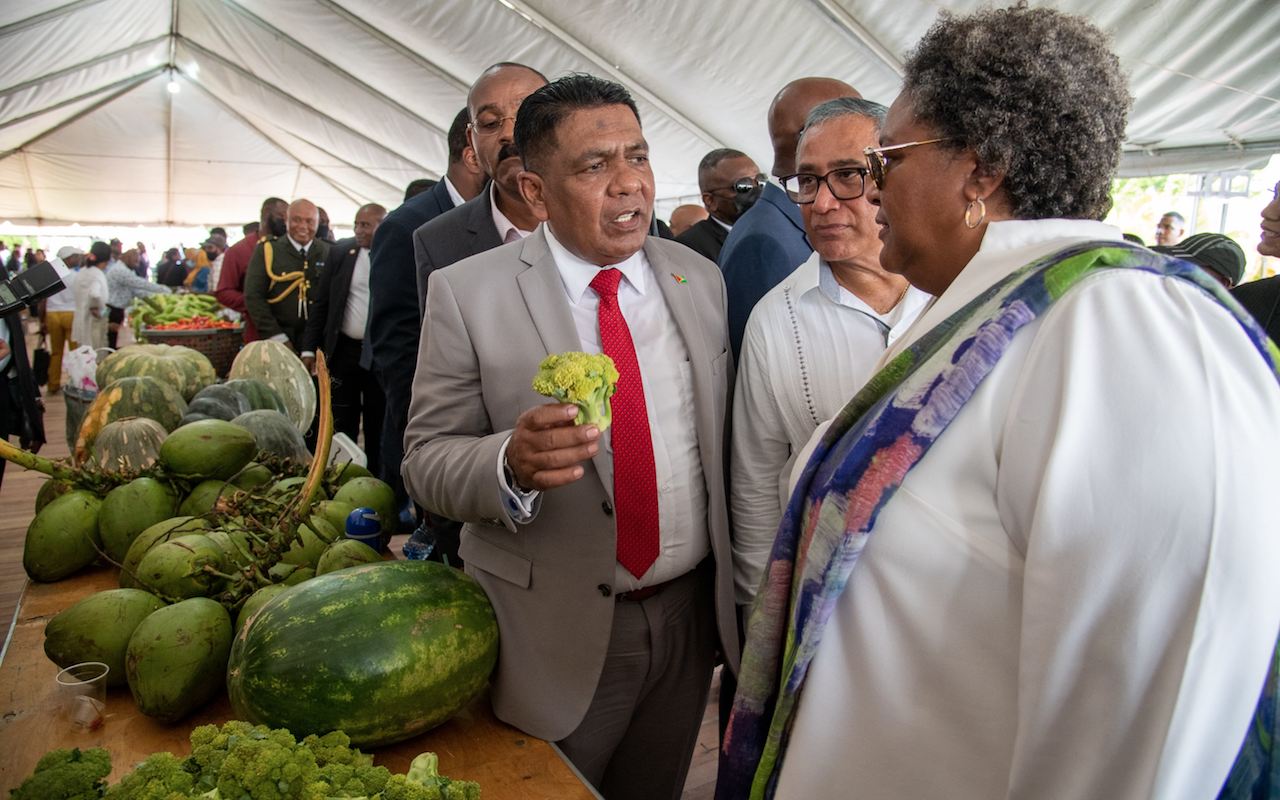Prime Minister Mia Mottley says Caribbean leaders have agreed that speedy transportation of produce is a key part of satisfying the region’s food demands.
Addressing a press briefing at the Arthur Chung Conference Centre on Friday, during the inaugural Agri-Food Investment Forum and Expo being held in Guyana, the Barbadian leader said: “We need an efficient supply chain that is safe and secure, and not necessarily one that is driven by imports”.
“With all that you are producing, if we can’t get it to the island chain in a manner that is quick and affordable, then it is of no use,” she stressed.
As such, Mottley reasoned that the forthcoming Guyana/Barbados food terminal is a critical mechanism that will enable the swifter transportation of food produced in the region.
Through the food terminal, Barbados would act as a hub to transship agricultural produce between the island and Caribbean Community (CARICOM) member states. Seven acres of land at Lears, St Michael – which will have a purpose-built facility to accommodate about 40 containers at any time, a reservoir holding 20 million gallons of water, and land for crop production – have been identified for the terminal.
Mottley said the food terminal is part of the “concrete plans” that have emerged from the ongoing agriculture forum in Georgetown.
She also alluded to future opportunities for air transport, noting that the Caribbean Development Bank (CDB) is expected to focus on the elusive improvement of transport arrangements.
Guyana is leading CARICOM’s charge to cut the massive annual US$5 billion food import bill by 25 per cent by 2025. The main thrust underpinning this effort is an expansion of regional food production.
However, despite the general commitment of CARICOM countries to free trade, intra-regional trade barriers remain a challenge.
Prime Minister Mottley said that at the next meeting of CARICOM Heads of Government in July, there should be a reinvigorated focus on dismantling some of those barriers.
“We, therefore, hope that at the next Heads of Government meeting, which is in about two months’ time, and immediately after, possibly in Dominica, that we can go and sit down without all of the fanfare and all of the frills and just attack the top barriers,” she said pointedly.
Local businesses, for example, lament the trade challenges that exist when they attempt to export goods to some states like Trinidad and Tobago. These include non-tariff barriers such as quotas, embargoes, sanctions and levies.
The Prime Minister, just as many of her colleagues did a day before, said these barriers must be removed.
“There are too many stories of containers of produce being left at ports to spoil, and it has happened in too many countries or restrictions because of failure to comply with sanitary and phytosanitary conditions,” she said.
“We need to be very practical now. We can’t move produce from country to country if people are going to lose their investment,” Mottley added.
(BT/NEWSROOM GUYANA)




